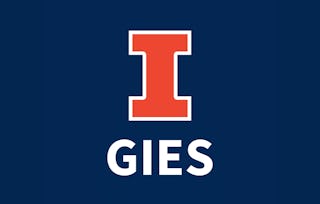This is the second part of a two-class sequence on financial accounting. FINANCIAL ACCOUNTING I & II, held consecutively, will provide you with a strong foundation to tackle many financial issues. Accounting I covers the basics, while Accounting II deals with more advanced topics. The topics discussed are “general” and apply to accounting practices worldwide – whether in the USA, Europe, Asia, etc.
即将结束: 只需 199 美元(原价 399 美元)即可通过 Coursera Plus 学习新技能。立即节省

您将学到什么
Master the mechanics of financial accounting.
Understand the structure, functions, and interrelation of the basic financial statements (balance sheet, income statement, and cash flow statement).
Be able to perform a structured fundamental analysis of the financial statements to assess a firm’s profitability, liquidity, and solvency.
Be familiar with the accounting rules governing the recognition and measurement of key activities, events and transactions.
您将获得的技能
要了解的详细信息

添加到您的领英档案
39 项作业
了解顶级公司的员工如何掌握热门技能

该课程共有9个模块
Why learn accounting? Because it is an integral part of finance, one of the most sought after and highly paid professions across the world. Financial literacy is extremely valuable from a personal and professional point of view, irrespective of what type of job you are doing.
涵盖的内容
1个视频2篇阅读材料
Accounts receivable, or selling on credit, is a hallmark of modern societies. Receivable entail complex estimations, and managerial judgement. They are under the discretion of management and involve significant flexibility. The learning objectives of this session are: Understand receivables; Understand the selling cycle; Understand how to report bad debt expense; Understand the percentage of sales method, and the percentage of receivables (i.e., balance sheet method); Understand receivable write-offs; Understand how receivables can be manipulated; Understand receivables turnover. Inventories constitute, often, the biggest line item a firm’s income statement (through Cost of Good Sold (COGS). Hence, understanding inventories is important, and leads to lean and efficient operations. The learning objectives of this session are: Understand inventories; Understand how inventories are converted to cost of goods sold; Understand the difference between raw materials, work-in-progress, and finished goods; Understand the lower of cost-or-market rule (LCM); Understand inventory write-downs (or write-offs, or impairment); Understand inventory management, and how reduced working capital conserves cash; Understand inventory turnover.
涵盖的内容
3个视频2篇阅读材料5个作业
Long-term assets are at the heart of the productive capacity of business. Whether tangible, or intangible, such assets are at the heart of a firm’s productive capacity. The learning objectives of this session are: Understand long-term assets; Understand the differences between tangible and intangible assets; Understand the concepts of depreciation, amortization, and depletion; Understand impairment testing; Understand the financial statement implications of purchasing and selling assets; Understand the difference between capitalizing and expensing Understand the concept of fair values vs. historic costs; Understand how R&D is treated in financial statements; Understand fixed asset turnover; Understand how long term assets are manipulated.
涵盖的内容
3个视频2篇阅读材料5个作业
Equity is what remains to the shareholders. Equity makes us happy and makes us buy stuff. Equity is the illusion of wealth when it is all (sometimes) only on paper. The objectives of this session are: Understand common stock and paid in capital; Understand treasury shares; Understand stock buybacks and dividends; Understand EPS.
涵盖的内容
3个视频2篇阅读材料5个作业
Liabilities, bonds, and leases are at the heart of understanding liabilities. Too many firms went under because they did not understand the importance of liabilities, and its effect on firm risk. The objectives of this session are: Understand how leverage leads to risk; Understand the difference between operating and capital leases (financial leases); Understand bank loans, and its accounting; Understand bonds, and its accounting; Understand deferred revenue, contingent liabilities, and provisions.
涵盖的内容
3个视频2篇阅读材料5个作业
Financial assets are the culprit of too many crises, and are especially important for banks. Moreover, financial assets help us understand how firms invest into bonds, stocks, and other investments. The objectives of this session are: Understand the difference between trading securities (or marketable securities), and equity investments (or investments into affiliates); Understand mark-to-market; Understand held-to-maturity instruments; Understand bonds issued at a premium, at par, and at a discount.
涵盖的内容
3个视频2篇阅读材料5个作业
There are more than 40,000 mergers and acquisitions (M&As) yearly, globally. M&As are how companies grow, acquire vital resources, and control supply chains and product markets. The objectives of this session are: Understand M&A accounting; Understand the concepts of goodwill and minority interest; Understand goodwill impairment; Understand the consolidation process, and adjusting entries.
涵盖的内容
3个视频2篇阅读材料5个作业
Taxes are something nobody likes (except, the government!). Taxes makes us cringe, taxes make us cry. Nonetheless, we all have to pay taxes, and we need to understand the rules and how to take advantage of the flexibilities in these rules. The objectives of this session are: Understand Taxes, tax expense, and tax paid; Understand how governments use taxes to incentivize corporate behavior; Understand the difference between temporary differences and permanent differences; Understand deductions, and additions, to taxable income; Understand why some corporations pay such low taxes.
涵盖的内容
3个视频2篇阅读材料5个作业
Earnings management is probably the most common term when we hear about accounting. Fraud. And fraud is everywhere, unfortunately. The objective of this session is: Understand.
涵盖的内容
4个视频1篇阅读材料4个作业
位教师


从 Finance 浏览更多内容
 状态:预览
状态:预览University of Lausanne
 状态:免费试用
状态:免费试用University of Illinois Urbana-Champaign
 状态:免费试用
状态:免费试用 状态:免费试用
状态:免费试用University of Illinois Urbana-Champaign
人们为什么选择 Coursera 来帮助自己实现职业发展




学生评论
69 条评论
- 5 stars
89.85%
- 4 stars
8.69%
- 3 stars
0%
- 2 stars
1.44%
- 1 star
0%
显示 3/69 个
已于 Dec 5, 2024审阅
The professor explains really well! The quizzes are also helpful and cover everything.
已于 Dec 19, 2024审阅
A great and thorough course, covering a large variety of different topics in accounting.
已于 May 25, 2025审阅
Excellent content and delivery. It is a very useful course for accounting professionals!!! Thank you so much Unil!
常见问题
To access the course materials, assignments and to earn a Certificate, you will need to purchase the Certificate experience when you enroll in a course. You can try a Free Trial instead, or apply for Financial Aid. The course may offer 'Full Course, No Certificate' instead. This option lets you see all course materials, submit required assessments, and get a final grade. This also means that you will not be able to purchase a Certificate experience.
When you purchase a Certificate you get access to all course materials, including graded assignments. Upon completing the course, your electronic Certificate will be added to your Accomplishments page - from there, you can print your Certificate or add it to your LinkedIn profile.
Yes. In select learning programs, you can apply for financial aid or a scholarship if you can’t afford the enrollment fee. If fin aid or scholarship is available for your learning program selection, you’ll find a link to apply on the description page.
更多问题
提供助学金,



